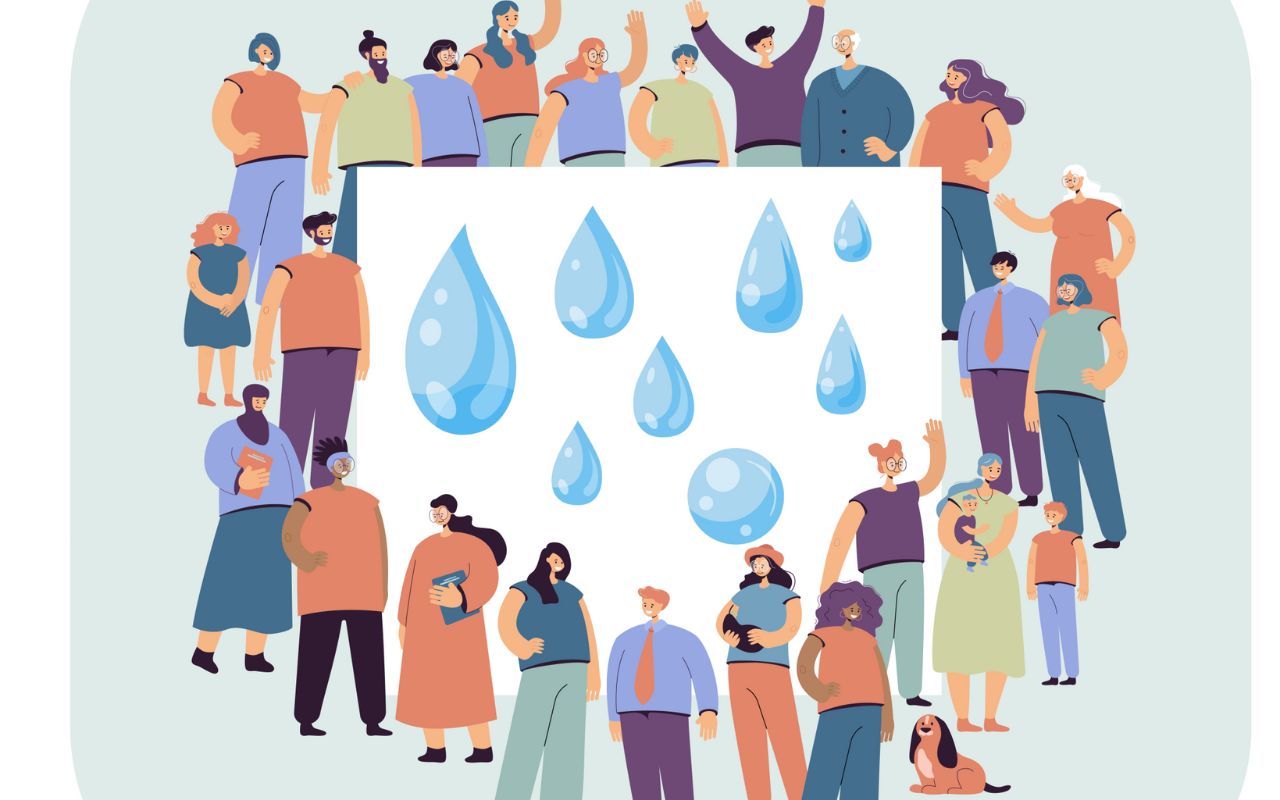Riflessioni e spunti circa i percorsi e gli strumenti di partecipazione nel servizio idrico integrato nel terzo Position Paper di Ref Ricerche e Amapola. Idee, suggerimenti, proposte e prospettive che prendono avvio dall’analisi dei dati per la costruzione di un dialogo, basato sulla conoscenza e sulla fiducia, tra i gestori e i cittadini.
Il ruolo della comunicazione nel servizio Idrico integrato: costruire una relazione di fiducia tra cittadini e gestori
Se dovessimo interrogare una platea di individui sulla funzione del servizio idrico in Italia, una grande percentuale potrebbe rimanere in silenzio. Se invece chiedessimo loro cosa ne pensano della qualità di questo servizio, scopriremmo che molti sono insoddisfatti o delusi. Ma perché c’è ancora tanta gente poco informata o con opinioni distorte sulla realtà?
Il Laboratorio Ref Ricerche e Amapola hanno esaminato questi aspetti in due recenti studi, con l’obiettivo di esplorare la relazione tra i cittadini e il servizio idrico integrato. Queste ricerche hanno proprio evidenziato delle lacune nella comprensione del servizio e dei suoi cambiamenti da parte dei cittadini, oltre a molte richieste di miglioramento spesso dettate dall’emotività. La soluzione a questo tipo di problemi è tanto semplice da trovare quanto impegnativa da attuare: è necessario migliorare la comunicazione. I gestori del servizio idrico e i cittadini devono iniziare a dialogare in modo proattivo e a costruire una relazione di fiducia reciproca.
L’importanza del servizio idrico integrato
Il servizio idrico integrato va oltre la semplice erogazione di acqua; è un elemento cruciale per la società, poiché il diritto all’acqua potabile è considerato un diritto umano fondamentale. Questo implica che i gestori del servizio hanno un ruolo sociale, educativo e culturale, oltre alla mera responsabilità di fornire la risorsa. La gestione del servizio idrico comporta vari obiettivi, tra cui la garanzia di qualità, la protezione delle risorse idriche, l’equilibrio ambientale e la sostenibilità su molti fronti. Tuttavia, questi obiettivi non possono essere raggiunti solo attraverso le azioni dei gestori ma richiedono la collaborazione attiva dei cittadini: entrambe le parti devono lavorare insieme per promuovere comportamenti responsabili e un uso razionale dell’acqua.
Gli “ambasciatori dell’acqua” e la strategia di comunicazione
Un elemento chiave per migliorare la comunicazione tra gestori e cittadini è la figura degli “ambasciatori dell’acqua”. Il nome è evocativo e rimanda proprio al ruolo di questi individui: essi devono promuovere la comunicazione, l’informazione e il dialogo tra le parti interessate. I gestori, nello specifico, devono essere consapevoli degli impatti della loro attività e comunicare in modo efficace per instaurare una relazione di reciprocità con i cittadini, dimostrando di essere promotori del cambiamento. I cittadini, invece, non sono più semplici utenti o consumatori, ma sono anche fornitori, finanziatori e dipendenti del servizio idrico, e devono avere un ruolo attivo nella definizione delle politiche ambientali e sociali dei gestori. Così risulta necessario approcciarsi a tutti gli stakeholder e coinvolgere tutti coloro che ricadono sotto la sfera d’azione del gestore tramite un approccio trasparente.
Strumenti
La sostenibilità è diventata la nuova normalità, e le aziende devono tener conto dei propri impatti sui lavoratori, sull’ambiente e sulla comunità. La pianificazione è fondamentale per promuovere la sostenibilità nel settore del servizio idrico e deve integrare degli obiettivi mirati per affrontare le sfide non solo attuali ma anche – e soprattutto – future. Per fare ciò è necessario analizzare a fondo il contesto interno ed esterno, coinvolgere le funzioni aziendali e gli stakeholder principali nella definizione degli obiettivi e monitorare costantemente attraverso indicatori chiave di performance misurabili nel tempo.
Il bilancio di sostenibilità, invece, è lo strumento che deve essere usato per comunicare in modo trasparente gli aspetti ambientali, sociali ed economici dell’attività dei gestori del servizio idrico. Questa rendicontazione non è solo un punto di inizio o di arrivo, ma uno strumento di informazione e dialogo. È utilizzato, infatti, per comunicare risultati, strategie e politiche all’esterno dell’azienda in modo diretto ed efficace, rendendo le informazioni accessibili anche ai non addetti ai lavori. Inoltre, fornisce informazioni rilevanti sugli indicatori ESG (Ambiente, Sociale, Governance) che interessano investitori, banche, cittadini e consumatori.
Andando oltre alla correttezza e accessibilità delle informazioni fornite, è importante agire anche sui fattori che più causano distorsione nelle percezioni degli individui. È importante analizzare i bias che influenzano la percezione e il comportamento dei cittadini e affrontarli attraverso una comunicazione basata sull’ascolto e il coinvolgimento. La costruzione di una relazione aperta, trasparente e autentica – che vada oltre l’unidirezionalità – tra gestori e cittadini richiede tempo, dialogo, ascolto attivo e coinvolgimento. I progetti di comunicazione – intesa nel suo significato autentico di messa in comune – diventano così centrali per rinsaldare l’alleanza, agendo da un lato a livello info-formativo per diffondere consapevolezza e cultura sulla risorsa acqua e sul servizio e dall’altra attivando processi di coinvolgimento e partecipazione sempre più nevralgici per i gestori, chiamati a una nuova relazione – più inclusiva – con i propri stakeholder.
Conclusioni
Per raggiungere gli obiettivi di sviluppo sostenibile nel settore del servizio idrico, è fondamentale costruire un’alleanza tra cittadini e gestori. Questo è essenziale per affrontare le sfide globali legate all’ambiente e alla società e per essere efficace deve partire dall’analisi dei dati e delle tendenze, per riuscire a comprendere a pieno le preoccupazioni e le richieste dei cittadini.
Le strategie di miglioramento della comunicazione devono andare oltre la semplice diffusione di conoscenza e consapevolezza; devono infatti coinvolgere attivamente i cittadini, ascoltarli e rispondere alle loro esigenze. La comunicazione deve essere un processo bidirezionale in cui gli stakeholder possono influenzare le decisioni e contribuire alla costruzione di soluzioni condivise.
Questa relazione è fondamentale per affrontare le sfide legate alla gestione sostenibile dell’acqua e per promuovere comportamenti responsabili da entrambe le parti. Solo attraverso il dialogo, basato sulla conoscenza e sostenuto da azioni concrete, si può costruire una partnership solida che contribuisca a garantire un futuro sostenibile per il servizio idrico integrato e i suoi fruitori.


